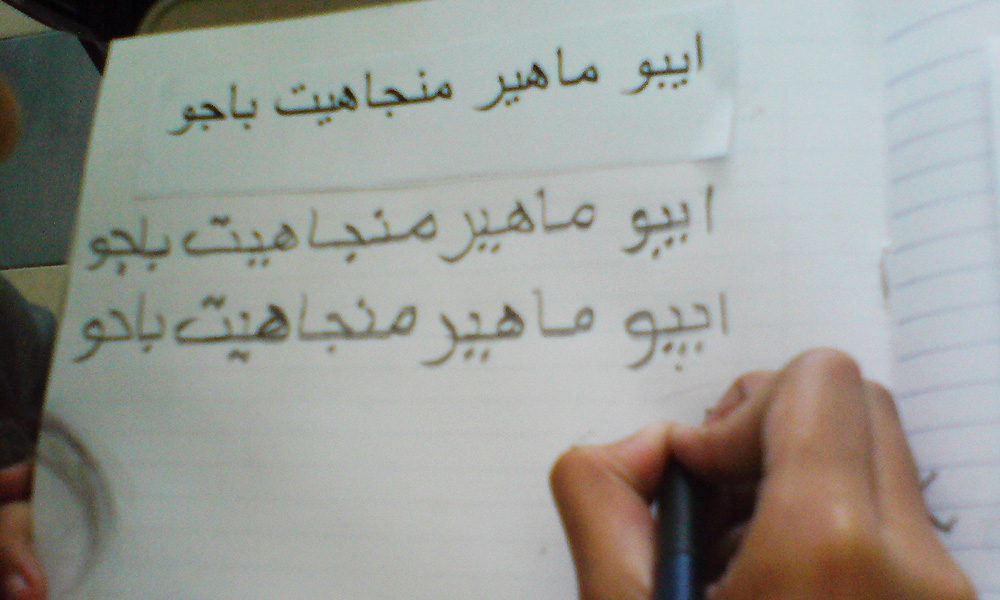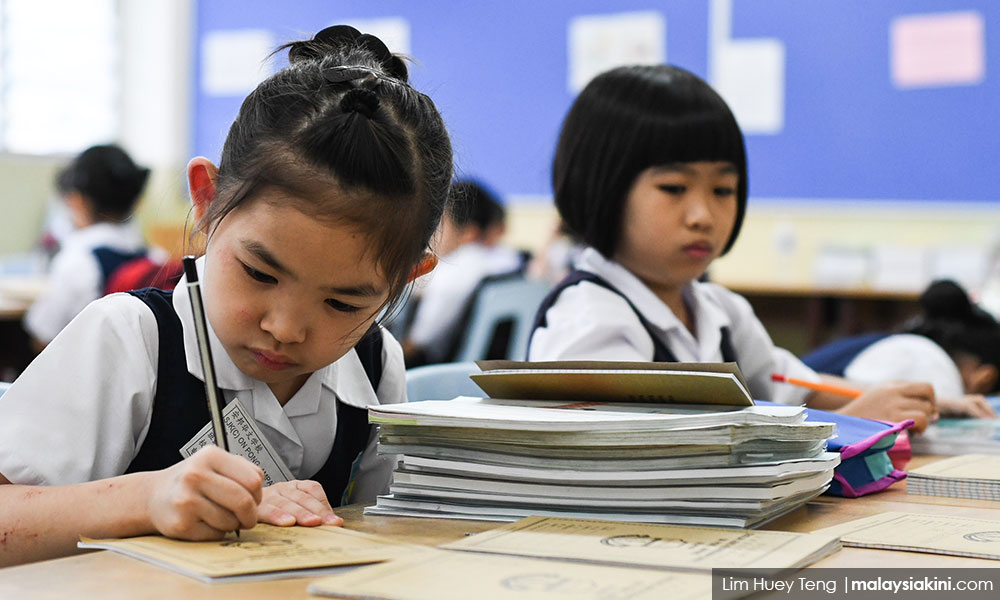
ADUN SPEAKS | This morning over breakfast in the South Indian city of Salem, my conversation with DAP veteran Lim Kit Siang invariably gravitated to the controversial topic of the proposed introduction of khat calligraphy in the Bahasa Melayu syllabus of primary schools.
We agreed that somehow or other, Malaysians must go beyond the zero-sum game of thinking and acting as to who gains and who loses.
The government in Putrajaya might be different, but the old and archaic zero-sum game seems to take precedence in determining the political discourse.
At one level, the introduction of khat is a simple exercise in terms of exposing students to artistic expressions and values.
But on another, no sooner was the policy announced – with little or no public consultation – there was a hue and cry.
It is argued that the introduction is seen as gain for Malays and the loss for non-Malays.
Some quarters have gone to the extent of saying that khat might constitute a subtle attempt at Islamisation.
Maybe there is no basis for this fear, but the polarised nature of politics and the mutually exclusive conception induce fear among non-Malays, particularly among those who think that such a policy might dilute the vernacular content of Chinese and Tamil primary schools.
The integration of khat is not compulsory in schools, but does not help in mitigating the worst fears of non-Malays in the country.
However, there are some who think of cutting across the racial and religious divide in terms of the significance of khat, when there are other urgent matters to consider.
The urgency to prepare our students to face the challenges of Industrial Revolution 4.0 with the introduction of science and technology programmes seems to be the order of the day.
But to what extent this is a priority seems not clear.
Education Minister Maszlee Malik has taken the trouble to explain khat, but fails to address other pressing concerns of schools.
Prime Minister Dr Mahathir Mohamad's statement that the government will not backtrack on khat, and the fact that Malaysia allows for the use of Chinese and Tamil scripts in vernacular schools was a reminder to those who oppose the move.
Mahathir’s statement seems to be quite harsh towards those who are opposing the khat policy.
While some might oppose for the sake of opposing, in the polarised atmosphere of Malaysia – where things are often figured in mutually opposing terms – there might be grounds for concern both imagined and real.
The Pakatan Harapan government backtracked on the International Convention on the Elimination of All Forms of Racial Discrimination and later the Rome Statute of the International Criminal Court out of concern of a possible backlash from the conservative racial and religious forces.
Those who voted Harapan were disappointed, but the government, being responsible, had to take the retrogressive measure.
The introduction of khat might not be a big issue, but then if it is not handled well it could be an albatross around the neck of the Harapan government for a while.
The DAP is expected to address this issue of khat, at least to quell grassroots dissatisfaction that might emerge. The party, being in the coalition, faces difficulty in managing the matter in the best possible manner.
It must go beyond simple-minded rationality to embrace the pernicious nature of zero-sum politics in the country.
The compromise on Lynas has not gone well with the supporters, and now khat.
So how the DAP leaders are going to manage the unfolding crises and at the same maintain intact its support base among non-Malays remains to be seen in the coming days.
It is not khat or Icerd or the Rome Statute, but how Malaysians are going to navigate the rough waters of politics that are structurally embedded in a zero-sum game.
To get out of this structural conundrum, it will take several parties to tangle and move beyond the dark ages that have crippled Malaysia as a nation.
At the end of the day, it is not so much khat or the fears of non-Malays, but the poisoned atmosphere of extreme racial and religious politics.
The challenge before us: how to get out of this imbroglio?
P RAMASAMY is the state assemblyperson for Perai. He is also deputy chief minister II of Penang. - Mkini




I think some are barking at the wrong tree!
ReplyDeleteLearning Khat is fine but why park it under Bahasa Malaysia?
Should it not be under Jawi/Islamic studies or Lukisan/Arts?